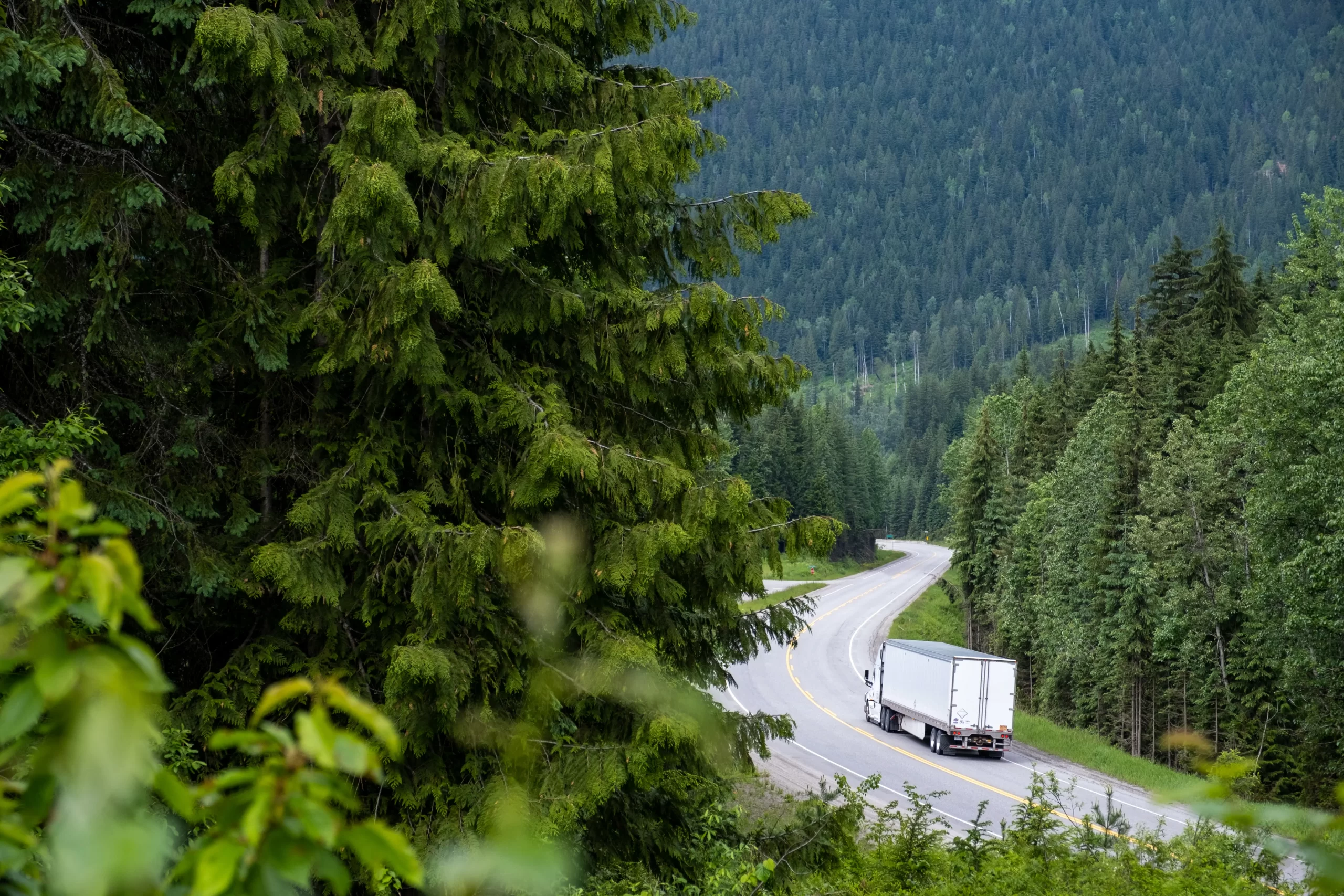
What is a sustainable truck?
A sustainable truck, or LZEV, refers to a heavy vehicle designed to minimise environmental impact through reduced emissions of greenhouse gases (GHGs) and pollutants. These trucks typically incorporate advanced technologies and alternative fuel sources to achieve higher fuel efficiency and lower carbon footprints compared to their traditional diesel-powered counterparts.
What are the benefits of using LZEVs in Australia?
There are both push and pull factors encouraging operators to make the change. Here are the most compelling.
Environmental impact: Transitioning to sustainable trucks aligns with global and national efforts to combat climate change and improve air quality. Reduced emissions of CO2, NOx, and particulate matter contribute to a cleaner and healthier environment for communities.
Compliance and market access: Regulatory frameworks in Australia, including emissions standards and sustainability targets, increasingly incentivise or mandate the adoption of low emission vehicles. Meeting or exceeding these standards also helps to avoid penalties and ensure eligibility for government tenders or contracts that give preference to sustainable practices.
Operational cost savings: Sustainable trucks often exhibit higher fuel efficiency and lower maintenance requirements due to simpler engine designs. This translates into long-term cost savings and improved profitability for transport operators. There are also potential incentives such as tax credits or grants for adopting clean technologies, making them even more attractive.
Market demand and reputation: Consumers and businesses alike are placing greater emphasis on sustainability and ethical business practices. Investing in sustainable fleets enhances brand reputation, attracts environmentally conscious customers, and opens doors to new market opportunities.
Future-proofing investments: Most operators understand evolving market trends and have anticipated stricter environmental regulations in the industry. As such, investing in sustainable heavy vehicles now positions transport companies for future success and resilience by embracing technological innovation. This not only applies to trucks, but also to alternative fuels, energy storage, and smart transportation systems.
What sustainable truck options are available in Australia in 2024?
Though numbers on the ground are still small, the rate of uptake is increasing sharply year-on-year. A mix of the following vehicle types is on our roads already.
Electric Trucks
Electric trucks powered by rechargeable batteries or hydrogen fuel cells offer zero-emission operations, making them ideal for short to medium hauls in urban and peri-urban areas. Leading manufacturers like Tesla, Volvo, and Daimler offer electric truck models with varying range and payload capacities suitable for diverse applications.
Hybrid Trucks
Hybrid trucks combine internal combustion engines with electric propulsion systems, providing flexibility and efficiency gains. They are well-suited for longer hauls and applications requiring higher power outputs. Brands like Toyota, Hino, Volvo, and Isuzu offer hybrid truck models with enhanced fuel economy and reduced emissions.
Natural gas trucks
Compressed natural gas (CNG) and liquefied natural gas (LNG) trucks offer cleaner combustion compared to diesel engines, with lower emissions of NOx and particulate matter. Manufacturers such as Kenworth, Scania, and Iveco provide natural gas truck options suitable for various freight and logistics operations.
Biofuel trucks
Biofuels derived from renewable sources such as biodiesel, ethanol, or synthetic fuels offer carbon-neutral or low-carbon alternatives to traditional diesel. Many truck manufacturers offer engines compatible with biofuels, allowing transport operators to reduce GHG emissions without major infrastructure changes.
Hydrogen fuel cell trucks
Hydrogen fuel cell trucks use hydrogen gas to generate electricity, powering electric motors with zero tailpipe emissions apart from water vapor. Companies like Hyundai, Honda, Isuzu, and Toyota are developing hydrogen fuel cell trucks for long-haul and heavy-duty applications, promising zero-emission transportation solutions.
Advanced technologies such as platooning (automated convoy driving) and autonomous driving systems enhance fuel efficiency, reduce traffic congestion, and improve safety in freight transportation. Partnerships between technology firms and truck manufacturers like Aurora and Volvo Trucks exemplify these innovations.
Platooning and autonomous trucks
Advanced technologies such as platooning (automated convoy driving) and autonomous driving systems enhance fuel efficiency, reduce traffic congestion, and improve safety in freight transportation. Partnerships between technology firms and truck manufacturers like Aurora and Volvo Trucks exemplify these innovations.
Sustainable trucks: coming soon
While sustainable trucking is its infancy in Australia, our road freight industry is successfully ticking off multiple ‘firsts’ in regard to LZEVs. The Truck Industry Council released its inaugural report into the low – zero emission vehicle market in Australia at the end of 2023. Financial incentives are being rolled out to make it easier for transport companies to purchase sustainable alternatives. Operators are being educated on greenwashing in the heavy vehicle sector to facilitate decision-making.
All this progress is important because transport is expected to become the largest GHG emitter and probably the most stubborn sector to transition. Time will tell if the policies, penalties, and incentives are enough to create a mass transition to greener road transport at the speed recommended by environmental agencies.
Transport operators must make strategic decisions about their future-proofing plans, including fleet management and sustainability, to remain competitive. By leveraging available technologies, incentives, and industry partnerships, operators can achieve optimal sustainability outcomes while enhancing operational efficiency, cost competitiveness, and long-term profitability in the evolving transport sector landscape.
GoDesta: Growing Transport Faster, Smarter
